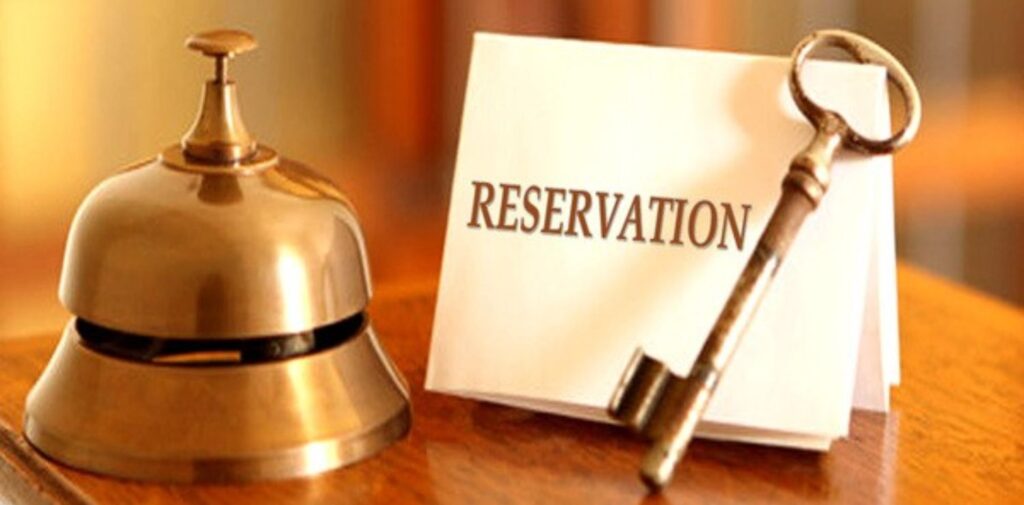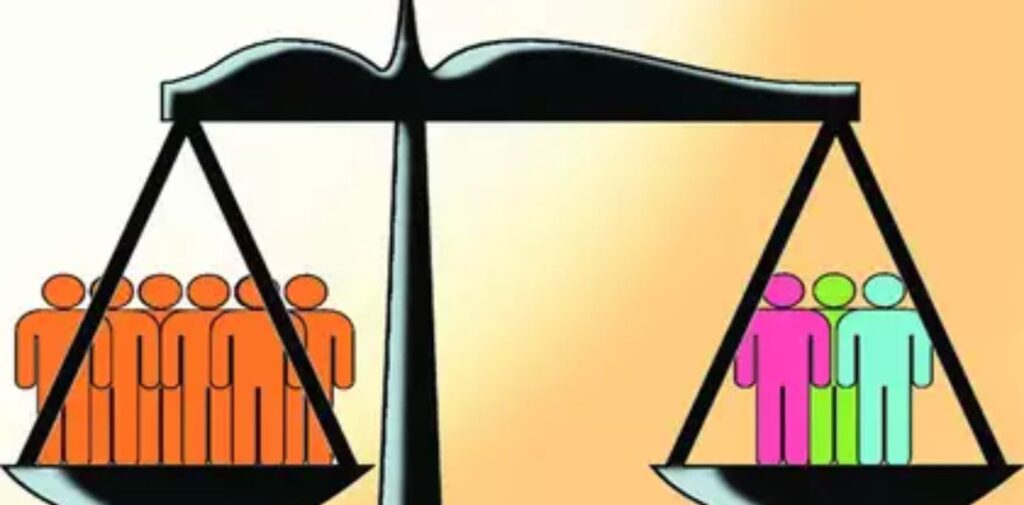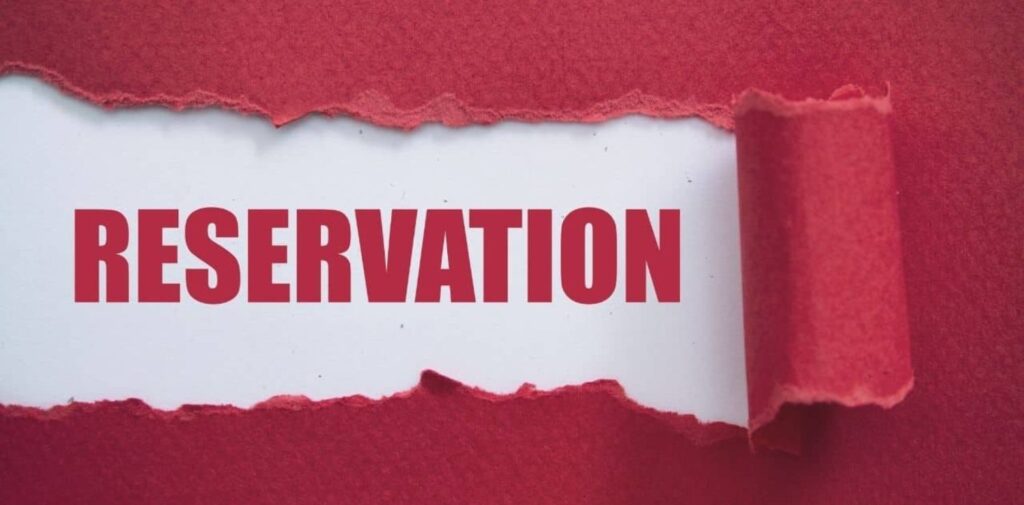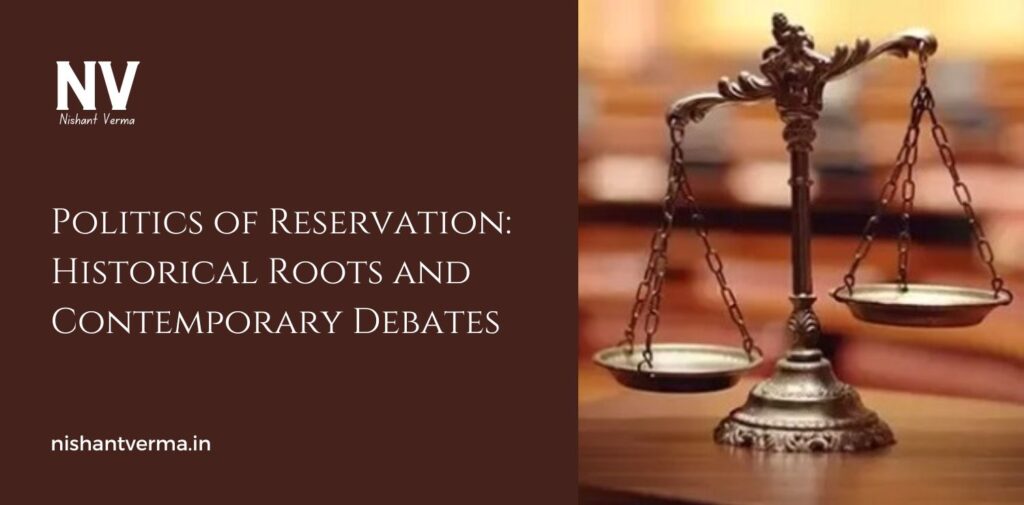In India, the concept of reservation is a topic that has sparked a lot of discussion and debate. For many years, certain groups in India, such as the Dalits (formerly called “Untouchables”), Tribals, and Other Backward Classes (OBCs), have been given special treatment or “reservations” in education, government jobs, and other areas to help them improve their social and economic conditions. While reservation has helped many people rise above their struggles, it has also led to debates about fairness, equality, and its impact on society.
Let’s take a closer look at what reservation is, its historical roots, and the ongoing debates surrounding it.
What is Reservation?
Reservation refers to a system where certain groups of people are given special benefits, such as a certain percentage of seats in schools, colleges, and government jobs. These benefits are given to people who have historically faced discrimination and disadvantage. In India, these groups mainly include Dalits, Tribals, and OBCs. The idea behind this is to help these groups get better opportunities and move ahead in society.
For example, if a government office has 100 job openings, a certain percentage of these jobs might be reserved for people from Dalit or OBC communities. This ensures that they have a fair chance of getting jobs and improving their lives.

The Historical Roots of Reservation
The history of reservation in India dates back to the time before independence when people from certain communities were treated unfairly due to the caste system. The caste system divided people into different groups based on their birth. Those at the bottom of this system, like the Dalits, were denied basic human rights. They were not allowed to enter temples, drink water from the same wells as higher castes, or even get an education.
Dr. B.R. Ambedkar, one of India’s greatest leaders and a champion for the rights of Dalits, played a key role in the fight for equality. He believed that the Dalits and other backward communities needed special protection to improve their conditions in society. After India gained independence in 1947, the government realized that it was important to give these communities an opportunity to catch up with others and become part of the mainstream society.
In 1950, the Indian Constitution, drafted by Dr. Ambedkar, included the provision for reservation. The Constitution provided special benefits to help improve the lives of Dalits, Tribals, and OBCs, such as reserving seats in schools and jobs for them. This was a crucial step in addressing the centuries of discrimination and exclusion that these communities had faced.
The Need for Reservation
The main reason why reservation was introduced was to correct the wrongs of the past. For hundreds of years, people from lower castes were not allowed to study, work in respectable jobs, or even live with dignity. As a result, these communities were trapped in poverty and had fewer chances to improve their lives.
It was seen as a way to give them an equal opportunity to compete in education and employment. By giving them a reserved percentage of seats and jobs, the government hoped that over time, these communities would gain access to better resources, education, and skills, which would help them lead better lives.
The Benefits of Reservation
Over the years, reservation has benefited many people from Dalit, Tribal, and OBC communities. It has helped them get access to education, secure jobs, and live better lives. Many successful leaders, professionals, and scholars from these communities have emerged because of these policies.
For example, reservation has allowed many Dalit students to attend prestigious universities and colleges. Similarly, many government jobs that were once out of reach for people from these communities are now available to them. It has also led to the rise of Dalit and OBC leaders in politics and social movements, helping these communities have a voice in the country’s decisions.

The Controversy Surrounding Reservation
While reservation has helped many people, it has also led to some controversies and debates. One of the main arguments against reservation is that it may not always go to the people who truly need it. Some critics say that people from the higher classes within Dalit or OBC communities are benefiting from the system, even though they may not be poor or disadvantaged.
Another criticism is that reservation might create divisions in society. Some people feel that it encourages people to focus on their caste rather than their abilities, which can lead to unfair competition and lower standards. Many people believe that all students, regardless of their caste, should be judged on their abilities and qualifications alone.
Another concern is that reservation may not always help people improve their skills. Sometimes, reserved seats may allow a person to enter a university or job, but without the proper support or training, they may struggle to succeed in the long term. Critics argue that the focus should be on improving the quality of education and job opportunities for everyone, rather than giving based on caste.
The Modern-Day Debate on Reservation
In recent years, the reservation system has continued to be a hot topic of debate in India. Some people argue that it is no longer needed because India has made progress in reducing caste-based discrimination. They believe that everyone should be given equal opportunities based on their abilities, not their caste. They argue that the policies should be replaced with programs that focus on providing quality education and skill development for everyone.
On the other hand, many people believe that reservation is still necessary to help those from disadvantaged communities. They argue that even though India has made progress, there is still a lot of inequality in the country. The gap between the rich and the poor, and between people from different castes, is still very wide. Until this gap is reduced, they believe that reservation should continue to ensure that people from backward communities have a chance to succeed.

The Future of Reservation
The future of reservation in India is uncertain. While many people believe that it should continue, others feel that it is time to rethink the system. Some people suggest making the reservation system more focused on economic status rather than caste. This would mean that people from poor backgrounds, regardless of their caste, would get more opportunities.
Others suggest that the focus should be on improving education, healthcare, and job opportunities for all communities, so that people from disadvantaged backgrounds do not need special treatment. There are also calls for more transparency in how reservations are given, to ensure that only those who truly need them benefit.
Conclusion
The politics of reservation is a complex issue that has played a major role in shaping India’s society since independence. It has helped many people from Dalit, Tribal, and OBC communities access education and employment opportunities that were once out of their reach. However, it has also led to debates about fairness and the best way to achieve equality.
While the reservation system has made a difference in the lives of many people, it is important to keep discussing how it can be improved and whether it is still the best solution for today’s India. The goal should be to create a society where everyone, regardless of their caste or background, has the same opportunities to succeed. The future of reservation may change, but the pursuit of justice, equality, and fairness for all citizens of India will always remain a key priority.




